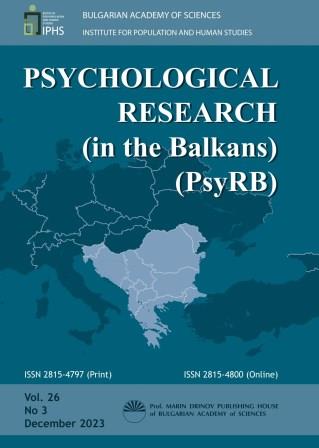COUNSELING FRAMEWORK, SPECIFICALLY AIMED AT ALEXITHYMIA, AND TAILORED TO AFFECTIVE VALENCE: PRECISE ASSESSMENT AS A KEY
COUNSELING FRAMEWORK, SPECIFICALLY AIMED AT ALEXITHYMIA, AND TAILORED TO AFFECTIVE VALENCE: PRECISE ASSESSMENT AS A KEY
Author(s): Tanya DimitrovaSubject(s): Social Sciences, Psychology, Individual Psychology, Personality Psychology, Clinical psychology
Published by: Институт за изследване на населението и човека - Българска академия на науките
Keywords: alexithymia; assessment; counseling and therapy; Perth Alexithymia Questionnaire (PAQ); Toronto Alexithymia Scale (TAS-20).
Summary/Abstract: There are numerous studies regarding therapy for high alexithymia, however, they share two limitations: the interventions studied are usually not specifically targeting alexithymia and those mentioning the valence of the emotion are rare. This could be partially due to the lack of precise measurement and diagnostics procedure. This paper aims to fill this gap by focusing on diagnostics as a fundamental first step and building on it a counseling framework specifically aimed at alexithymia and tailored to the affective valence. This is the first research in Bulgaria that, through confirmatory factor analyses, studies two of the most widely used alexithymia self-reports – PAQ and TAS-20, comparing the psychometric properties of the Bulgarian translations and analyzing their applicability in terms of mental health and therapy. The sample (N=360) filled PAQ, TAS-20, anxiousness, anhedonia, depression, and life satisfaction scales. Data suggest that PAQ and TAS-20 are valid and reliable instruments. Both may have wide application in screening and research, but as far as clinical decision making, PAQ seems to posses better psychometric properties. Furthermore PAQ`s more differentiated assessment might be of higher contribution since it was found that affective valence is an independent predictor of anhedonia and depression. Life satisfaction was unrelated to PAQ and negatively correlated to TAS-20, suggesting that the widely accepted assumption that alexithymia is associated with lower life satisfaction might be due to measurement specifics. Based on literature review and empirical data from this paper, counseling framework specifically aimed at alexithymia and tailored to the affective valence is proposed.
Journal: Psychological Research (in the Balkans)
- Issue Year: 26/2023
- Issue No: 3
- Page Range: 187-202
- Page Count: 16
- Language: English

